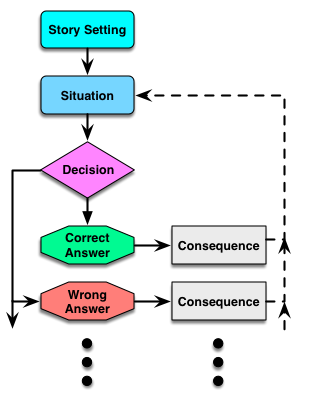Following on my thoughts on writing yesterday, this was a topic that didn’t fit (the post got too long ;). So here we go.. Colleagues have written that citations are important. If you’re making a claim, you should be able to back it up. On the other hand, if you’re citing what you think is ‘received wisdom’, do you need to bother? Pondering…
Now, citations can interfere with the flow, I believe. If not the reading, they can interfere with the flow of my writing! (And, I’ve been accused of ‘name dropping‘, where instead I believe it’s important to both acknowledge prior work and show that you know what’s been done.) Still, it’s important to know what to cite, and when.
I admit that I don’t always cite the claims I make. Because, I take it as a given. I may say something like “we know” or otherwise presume that what I’m saying is accepted premise. One problem, of course, is that I don’t know what others know (and don’t). And, of course, that this isn’t an official article source, this is my blog ;). Still, when I’m talking about something new to me (like thoughts from books), I will cite the locus.
Articles are different. When I write those, I try to provide sources. In both cases I generally don’t go to the extent of journal article links, because I’m not expect that folks have easy access to them, and so prefer to cite more commonly available resources, like books that have ‘digested’ the research.
And when I write ‘take down’ articles, I don’t cite the offender. It’s to make the point, not shame anyone. If you’re really curious, I’m sure you can track it down.
And, realize I don’t have easy access to journals either. Not affiliated with an institution, I don’t have access to the original articles behind a pay wall. I tend to depend on people who summarize including books and articles that summarize. Still, I’ve a grounding for over a decade in the original materials and am able to make inferences. And of course occasionally I’ll be wrong. Sometimes, I’ll even admit it ;).
The issue really is when do you need to make a citation. And I reckon it’s when you’re stating something that folks might disagree with. And I can’t always anticipate it. So I’ll try to consistently point to the basis for any claims I think might be arguable, or state that it’s my (NSH :) opinion. And you can always ask! Fair enough?

